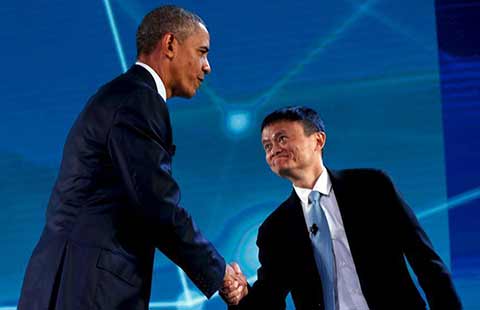Outbound M&As target tech, consumer companies
By Jiang Xueqing (China Daily) Updated: 2016-06-15 07:39
 |
The surge was partly driven by China National Chemical Corp's planned $46.4 billion acquisition of Swiss pesticide giant Syngenta AG.
The country's total M&A transaction volume nearly tripled from $259 billion in 2013 to $735 billion in 2015, accounting for half of the Asia-Pacific M&A volume and 15 percent of global volume last year, according to the report.
Other key drivers behind the growth include a shift in the Chinese economy from export-driven manufacturing to one driven by technology, industrial know-how and consumption. The report found that China's outbound M&A priorities evolved to focus on technology and consumption-focused sectors. Consistent with this shift, the targets of M&As moved from resource-abundant countries to developed countries that house companies with best-in-class capabilities and technologies.
As China's GDP growth slowed down to 6.7 percent in the first quarter, Chinese companies have turned to both domestic and outbound M&As to boost slowing organic growth.
The deals are facilitated by a supportive M&A financing environment along with overall monetary easing and a strategic imperative to execute overseas acquisitions. Regulators have also taken significant steps to relax the approval process for Chinese buyers seeking outbound acquisitions.
The recent M&A wave includes companies with a broader sector focus, domestic private equity firms and A-share listed companies, not just the energy- and resource-focused State-owned enterprises that were active earlier.
Brian Gu, co-head of M&A Asia Pacific at JP Morgan, said: "Most of the Chinese buyers have a strategic goal for their outbound acquisitions. The China M&A market has seen the emergence of experienced acquirers. They have become more confident in their ability to fund, execute and integrate multibillion-dollar deals."
The number of deals with a transaction value greater than $1 billion increased from two in 2005 to 28 over the 12 months ended April 2016.
The funding of outbound M&As can be more complex and less transparent than Western M&A financing. The source of funding may involve a diverse array of parties, including government investment vehicles, trust structures, equity syndicates and lesser-known private equity funds, according to the report.
Gu said: "Chinese buyers should be well-prepared for all sorts of possible questions from the target companies, providing a solution to address each concern of the sellers with the help of experienced legal and financial advisers."
- Outbound M&As target tech, consumer companies
- IMF official warns China of corporate debt risk
- Top 10 new features coming to the iPhone and iPad in iOS 10
- MSCI again rejects including China’s A shares in index
- Mercedes-Benz to recall 6,302 vehicles in China
- China's economy firmer, but pressure remains: Analysts
- Shenzhen company releases sunglasses-like VR glasses
- 'Warcraft' tops Chinese box office


















